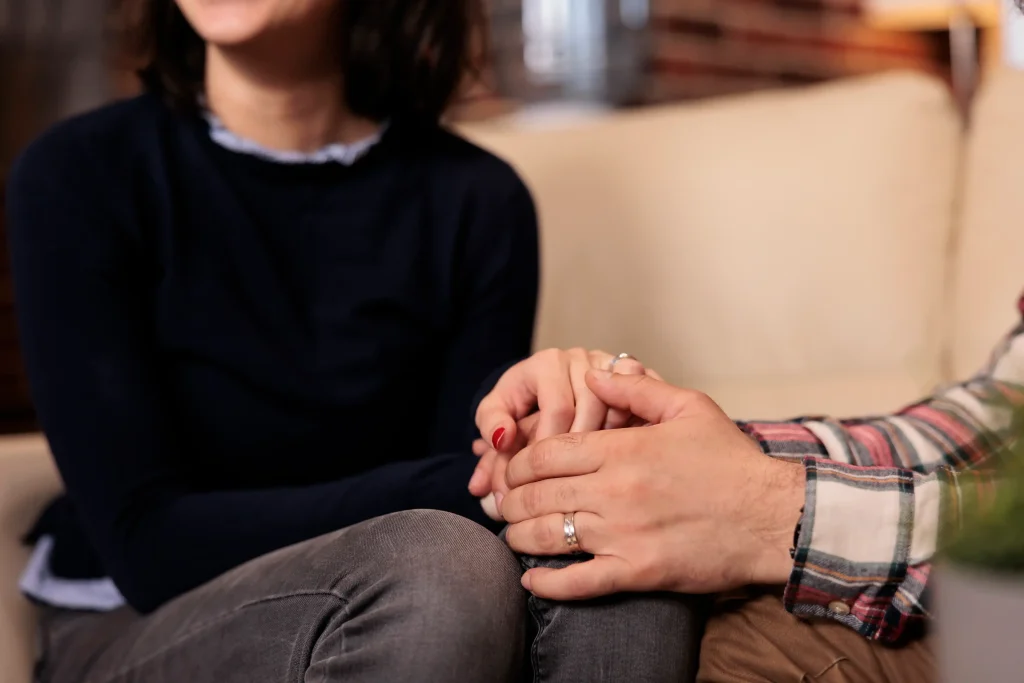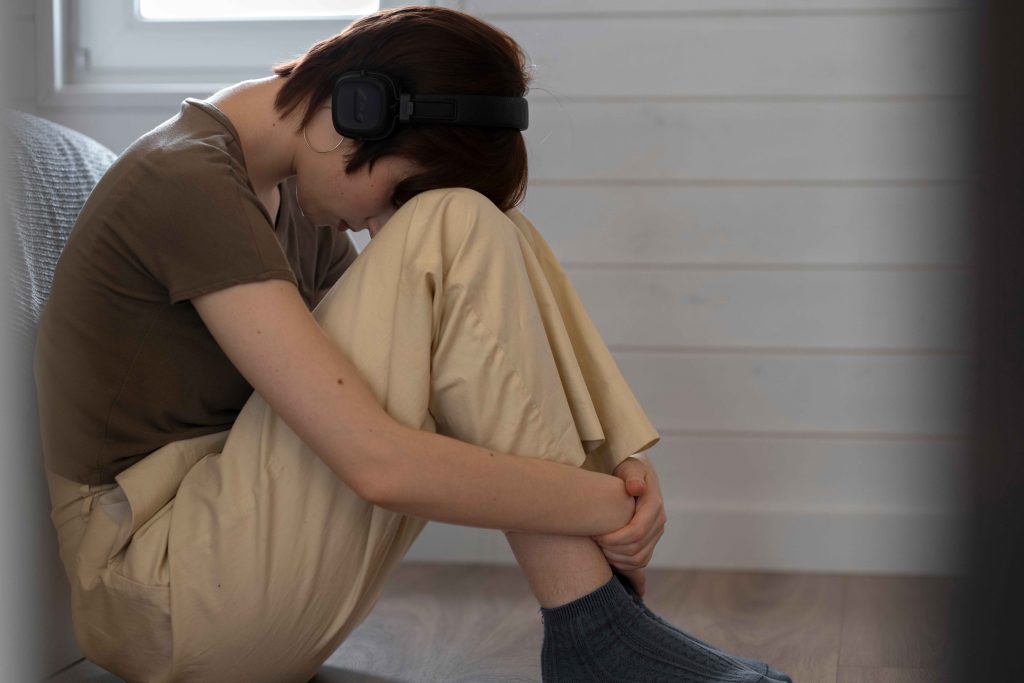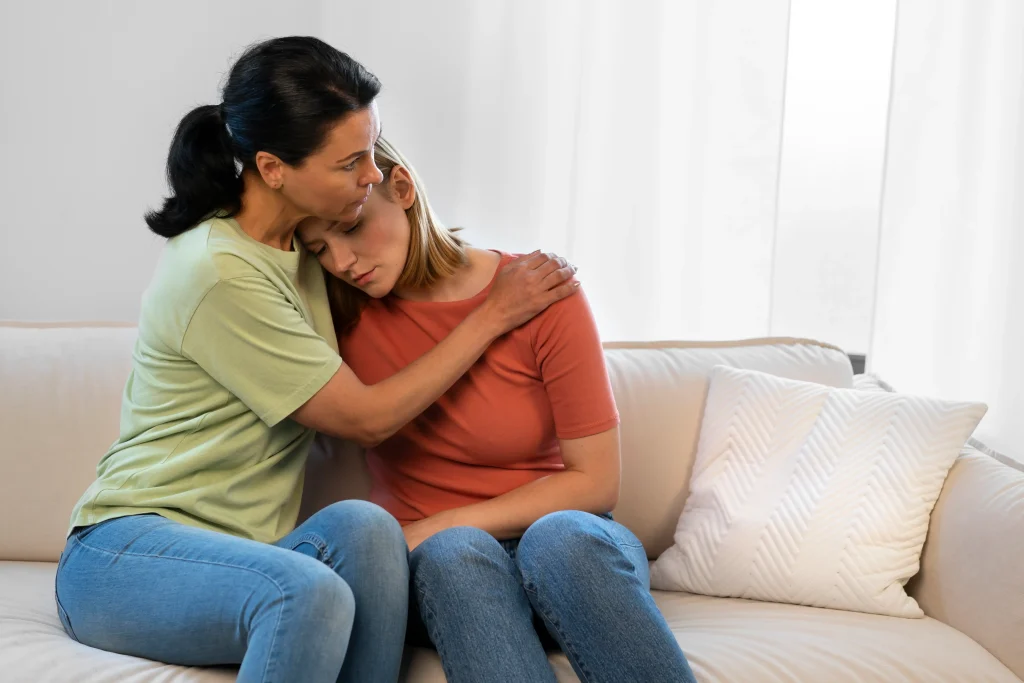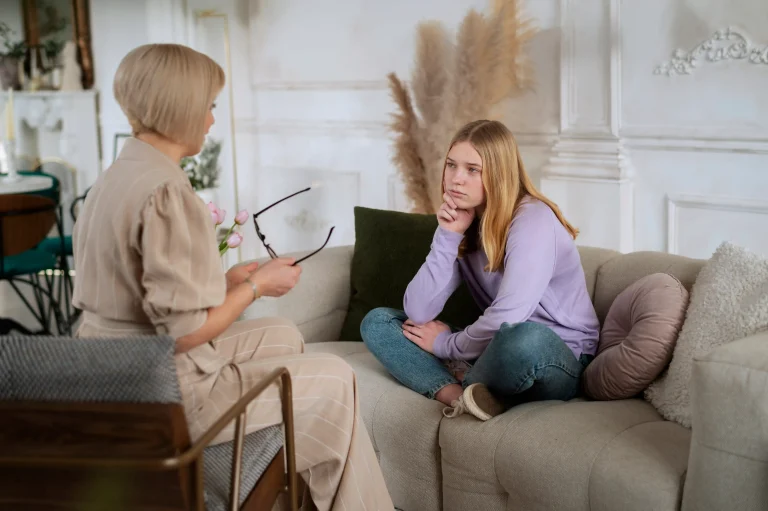Supporting a Child Suffering from Self-Harm
As a parent, it can be heart-wrenching to discover that your child is struggling with self-harm. The emotions that come with this revelation can be overwhelming, but it’s important to remember that you are not alone. Self-harm is often a way for young people to cope with emotional pain, stress, or feelings of helplessness. It doesn’t mean your child is beyond help, and there is hope for healing.
This page is designed to offer guidance and support to parents navigating the difficult journey of helping a child who self-harms. We’ll explore the signs, causes, and how to approach the situation with compassion and understanding. Most importantly, we want to remind you that with the right support, healing is possible, and your child can find healthier ways to cope with their emotions.
There is help available, and this does not need to impact the entirety of your child’s life. With the right intervention many young people move through self harm and find happy successful futures.

Recognizing the Signs of Self-Harm
It can be challenging to know if your child is self-harming, especially if they try to hide it. However, there are several signs to look out for, including:
- Unexplained cuts, bruises, or scars: These may appear on areas of the body that are usually covered, such as the arms, thighs, or wrists.
- Avoidance of activities that reveal skin: Your child may start wearing long sleeves or pants, even in warm weather, to conceal injuries.
- Behavioral changes: A sudden shift in behavior, such as withdrawing from family or friends, mood swings, or increased irritability, may indicate emotional struggles.
- Expression of emotional distress: Your child might begin to talk more about feeling sad, worthless, or unable to cope with their emotions.
- Increased secrecy or isolation: They may become more private, avoiding discussions about their feelings or what’s going on in their lives.
If you notice any of these signs, it’s important to approach the situation with empathy and care rather than judgment or panic. Your child may need your support more than ever during this time.
Why do young people self harm?

Self-harm is often a way for young people to manage overwhelming emotions or feelings they don’t know how to cope with. The causes can be complex, and each individual’s experience is unique. Some common triggers include:
- Mental health struggles: Issues like anxiety, depression, or eating disorders can contribute to self-harm as a way of managing intense emotions.
- Stress or pressure: Academic, social, or family stress may lead to feelings of inadequacy or helplessness, which can result in self-harm as a form of control.
- Trauma or abuse: Past experiences of trauma, whether physical, emotional, or sexual, can make self-harm a way of coping with pain or anger.
- Low self-esteem: Feelings of worthlessness or self-hatred can drive young people to engage in self-harming behaviors as a way to express or release their pain.
- Difficulty expressing emotions: Some young people may not know how to process or verbalize their emotions and use self-harm as an outlet for feelings they can’t express.
It’s important to understand that self-harm is not about seeking attention or being rebellious—it’s a sign of deep emotional distress that requires compassion and care.
How Can Parents Help?

As a parent, supporting your child through this challenging time is crucial, and there are several ways you can help:
Take care of yourself: Supporting a child through self-harm can be emotionally exhausting. It’s important to take time for your own self-care, and if needed, seek support for yourself as well.
Create a safe and open environment: Encourage your child to talk about their feelings without fear of judgment or punishment. Listen actively, and show empathy by validating their emotions.
Avoid reactions of anger or frustration: It’s natural to feel upset, but responding with anger or frustration can push your child further away. Approach the situation calmly and without blame.
Encourage professional help: Self-harm is often linked to underlying mental health issues that require professional support. Encourage your child to seek help from a counsellor, psychologist, or doctor who specialises in adolescent mental health.
Be patient: Healing doesn’t happen overnight. Your child may not be ready to open up immediately, and that’s okay. Continue offering love and support, and let them know you’re there for them, no matter what.
Help them develop healthier coping mechanisms: Work with your child to explore other ways to cope with their emotions, such as journaling, creative activities, mindfulness, or physical exercise.




